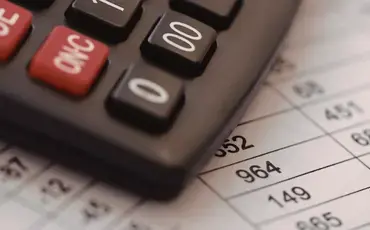
DIY Conveyancing or Conveyancing Solicitors: Which One is Best for You?
As leading conveyancing solicitors, we often get asked if individuals can perform conveyancing themselves. While the short answer is yes, there are various things you should be aware of when doing DIY conveyancing.
We’re here to tell you everything you need to know to ensure you are able to make an informed decision on which route you would like to take regarding conveyancing.
Usually, conveyancing is done by either a solicitor, licensed conveyancer, or legal executive, and the decision you make on your representative will entirely depend on the circumstances of the purchase.
What is conveyancing?
While there are various forms of conveyancing, ultimately, it is a system that is in place to ensure that the title to the property is not defective and conveyancing legalities are met for the buyer. It is important to establish as to whether the property is subject to any additional costs i.e., maintenance costs for communal open spaces.
The primary objective is to ensure the buyer is definitely investing in the property they believe to be buying, and that there are no issues with the title to the property.
Can I do my own conveyancing?
As previously mentioned, DIY conveyancing is an option, however, it is not usually possible if a mortgage is involved. If you are considering doing conveyancing yourself, you should only do so if you are completely confident and comfortable with legal jargon and paperwork, and even then, it can only be done with smaller transactions.
Naturally, there are also plenty of legal and financial aspects to consider, some of which may not be a part of the standard forms.
For example, if you choose to do DIY conveyancing, all parties involved must get their ID verified before an application to register the transaction can be made.
It is always better to have the support of a legal professional on your side, however, as the conveyancing process can often be lengthy and complicated. You can expect large quantities of paperwork, some of which, including contracts, require undertakings to be given by legal professionals, regardless of your choice to conduct DIY conveyancing.
In addition, you must also consider the searches and formal enquiries that are to be carried out before a transaction can safely take place. If these fail to be completed or are done incorrectly, big problems can arise even after the transaction has been completed leading to a buyer not being able to become the registered legal proprietor with the Land Registry.
What are the risks involved with DIY conveyancing?
Perhaps one of the biggest risks involved with DIY conveyancing is the fact that if something were to go wrong, you as an individual, will have no cover or negligence insurance. This could result in you incurring hefty fees and costs that you did not account for.
In an attempt to save money, you could incur costs of up to £10,000’s. This is because, when performing DIY conveyancing, if you miss something vital that only becomes apparent after the purchase, you will have no recourse against the seller. This is due to a common law principle of “caveat emptor”, which means “let the buyer beware”, which applies to UK properties.
When you rely on the services of conveyancing solicitors, you are covered by their professional insurance, providing you with peace of mind throughout the entire process.
Furthermore, if you were to make a mistake, you would be held personally responsible. When you outsource the conveyancing process to an expert, you can expect more security.
Mistakes can include carrying the wrong search and therefore having to pay a search fee twice. Or, on a more serious level, you may misinterpret a search result and end up purchasing an un-saleable property, or you may later find out that following completion, it is not possible to register the transaction.
When acting in a sale, if you fail to understand your obligations and responsibilities, you can accidentally give information for which the buyer can later sue.
When should you particularly avoid DIY conveyancing?
Even if you choose to proceed with DIY conveyancing, and your mortgage company has allowed it, there are some risks associated with the process. For example, we strongly advise against DIY conveyancing if:
- The property is leasehold
- The property is not registered with the Land Registry
- The property is not a house or flat
- The sellers are divorcing or separating
As you can see, there is a lot more involved with the conveyancing process than simply filling in some forms, meaning there is also more at risk should the process not be conducted correctly.
Do I need a solicitor to transfer a house deed?
There are many reasons why you may want to transfer the ownership of a property into someone else’s name, such as a result of property sale or purchase, or because of divorce or a death in the family. Regardless of the reason, a transferring of deeds must be done by a conveyancing solicitor.
Transferring ownership (equity) is a legal process. It is otherwise quick and inexpensive, although sometimes, more can be involved, especially when there is a mortgage associated with the property.
Here are the steps involved with transferring a house deed:
- Complete a Change the Register (AP1) form
- Complete the correct transfer form (TR1 or TP1)
- Complete a Certificate of Identity Form (ID1) form
- Calculate the HM Land Registry fee
- Send the completed forms to HM Land Registry
Transferring property can be a complex process, even if no money is changing hands. Whatever the circumstances, whether you’re transferring to a family member after a sale, or you’re transferring the property after a part-owner has died, there may also be a Stamp Duty Land Tax (SDLT) to pay.
Can I buy a house/property without a solicitor?
Whether you’re buying a new home, a commercial property or a BTL investment property, you will require legal assistance to handle the administrative work. While you are not obligated to use a solicitor to buy a house or property, it is strongly advised that you use a qualified professional to guide you through the process.
For example, a conveyancing solicitor can take on a large amount of work on your behalf, such as:
- Handle contracts
- Review the title to the Property and request that it be ‘perfected’ should any defects arise
- Provide legal advice
- Carry out local council searches
- Deal with the Land Registry
- Transfer the funds to pay for your property
By removing a lot of the stress and emotion from the situation, a conveyancing solicitor can ensure the entire process runs smoothly, and that the desired outcome is achieved.
Get help from conveyancing solicitors today
With years of experience navigating the conveyancing process for individuals, we can help you by streamlining the process and ensure all legal aspects are completely taken care of.
Our team understand the potential emotional toll of the conveyancing process on an individual; therefore, we apply years of knowledge with a personable approach.
Contact the conveyancing team at Smith Partnership today to find out more about our services and how we can assist you with all your conveyancing needs.

Share this article






















